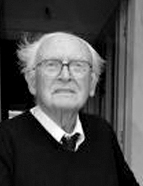

A reading of his work requires, therefore, knowledge of a starting axiom that, to a large extent, defines the structuring and selections made in it: "A history of a nation deals with the life of a society and is concerned with the distribution of power and the use made of it." ( A New History , p. X). Therefore, the author uses the basic concepts of society and power to analyse the history of Portugal, a conceptual tool with a relevance strongly evident in the chapters on the First Republic and the Estado Novo, which HL favours. In the years following that reissue, HL also emphasised the importance of integrating the history of Portugal into a broader framework, particularly with regard to Brazil Portugal and Brazil. An Introduction, 1953), the Iberian context ( The origins of Spain and Portugal , 1971), and the historical alliance with Great Britain ( Origin of Luso-British relations, 1976). Significantly valuing Anglo-Portuguese relations, HL argued these had historical roots in the cooperation of the English military expedition in the conquest of Lisbon, defining this moment as the "beginning of the predominance of western Europe, which reached its full realisation at the time of the Portuguese discoveries" ( Origem das relações luso-britânicas [Origin of Luso-British relations], p. 42) and recalling that "There was never a bridge between the Peninsula and the north. It's a symbolic bridge. The crusader ships form a bridge that is being built between the peoples of the north and the western part of the peninsula. [...] It is the omen of a permanent alliance ( Origem das relações luso-britânicas , p. 42). In his last work on Portugal— Portugal: A Traveller's History (2004), HL also valued the relevance of biography— paying special attention to a series of individuals from the history of the country— such as Luís de Camões, Fernão Mendes Pinto, and Alexandre Herculano from Geography— tracing routes from the north of Portugal to the Algarve, and Art— highlighting the importance of Portuguese music, architecture, and painting. HL was sometimes criticised for his conservative and anti-liberal political stance (referred to as rightwing in the context of English political parties). These political views were also reflected in his historiographical output. Indeed, the different editions of A History of Portugal present a fundamentally political valorisation of nationalism. New History of Portugal ends with a clear eulogy of the Estado Novo and Salazar. This praise is also emphasised by the contrast between this regime and the First Republic, which was characterised as a period of inefficiency and corruption during which "The deliberations of parliament were heated and often disorderly, and the power of decision was exercised, if at all, by the Carbonaria and other gangs of agitators" ( A New History , p. 330).
This work is financed by national funds through FCT - Foundation for Science and Technology, I.P, in the scope of the projects UIDB/04311/2020 and UIDP/04311/2020.
